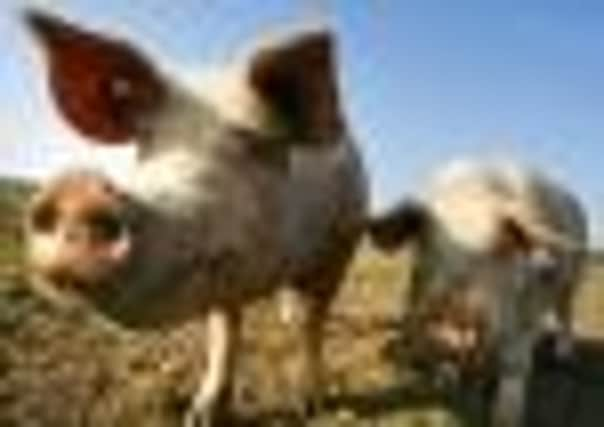Horsemeat scandal: Pork sector cashes in


“The response to our campaign for traceable, higher- welfare pork for British consumers has been outstanding. It was far, far better than we ever envisaged,” said NPA chairman Richard Longthorp.
The NPA had called on all the major food companies, including retailers, in Britain to check their supply lines forensically, and to boycott all pork and pork products from illegally-operated continental farms.
Advertisement
Hide AdAdvertisement
Hide AdThe organisation, which represents British pig producers, yesterday announced that 100 leading brands had pledged total traceability for the imported pork and pork products they sell.
“The response was slow to start with, but then ‘Horsegate’ erupted and food companies suddenly realised how vital it is that they know exactly where the raw materials they import come from,” said NPA general manager Dr Zoe Davies. “It is clear from the responses we have had that these companies have taken our challenge very seriously and, on behalf of British consumers, we thank them for their responsible stance.”
The campaign by the NPA is linked to the continuing lack of compliance by many member states to European Union regulations on sow housing. Recent data from Brussels has indicated that more than 60 per cent of EU countries are still failing to comply with new animal welfare rules and pregnant sows are still being confined in narrow individual cages known as “stalls” for most of their lives.
NPA said they were confident that the traceability pledges had helped to reduce the inward flow of pork from illegal, non-compliant farms. Yesterday, it called on all European countries to clean up their act and comply with the legislation.
“British consumers can be confident that most of the pork and pork products on British supermarket shelves is traceable and is produced to the high welfare standards they expect,” said Longthorp.
“British pig farmers have, of course, exceeded European welfare requirements for many years, and British pork is traceable back to its farm of origin.”
He indicated that the NPA would be following up on the assurances provided by the buyers with supply-line audits being conducted to check that the pledges were being honoured. “But, overall, we are extremely satisfied with the progress that has been made so far.”
At the beginning of the year, NPA estimated as many as 40,000 pigs an hour were being delivered to continental processing plants from illegally-operated pig farms.
As Britain imports around 60 per cent of its processed pork, it was feared that many British consumers were unwittingly supporting the trade in illegally-farmed pigs.